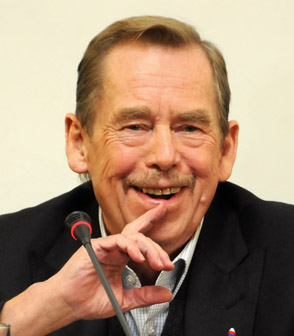This week one of the world’s most humble heroes died. Vaclav Havel — the former Czech president, prisoner and playwright who brought about the peaceful revolution in his country in 1989 — taught us some important lessons in leadership.
As you may have read elsewhere on this site, I had a front row seat on the bleachers of reform in Eastern Europe at that time. Buoyed by the quiet heroic actions of Havel and the more ebullient Lech Walsea, protestors brought about the fall of communism I witnessed in Bulgaria and Romania.
Years later my then 14-year-old niece and I saw Havel arriving at a concert in Salzburg, Austria. She couldn’t believe I was acting so awestruck about such a normal-looking man, and I couldn’t believe she hadn’t learned in school about how this person had helped to change the lives of so many by living out his principles.
In Havel’s early years as a playwright, he was inspired by banned philosopher Jan Patocka and wrote a political essay on the “Power of the Powerless.”
He wrote about a green grocer who refused to put in his shop window amid the onions and carrots a sign with the slogan “workers of the world unite.” It was understood that the green grocer was not expected to believe the sign; but by displaying it, he signaled he would give regime no trouble. But Havel believed the grocer could “live in truth” and reclaim his dignity by taking down the sign and suffering the consequences.
Are the workers of your world truly united or are they just paying lip service to your principles and beliefs? As a thought leader, do you have followers who find it easier just to give your regime no trouble but don’t really believe the direction you are heading is the right one? Do your employees think that, according to a worker in another of Havel’s plays called “Vanek,” they are simply “the manure that makes your fancy principles grow”?
These are tough questions that should cause you to reflect on your own regime.
Is it possible to live in truth in the world of business? Are you, as a thought leader, demonstrating to those you lead that your moral philosophy is to “live in truth”? Ask, assess, then act. We’re here to help.

